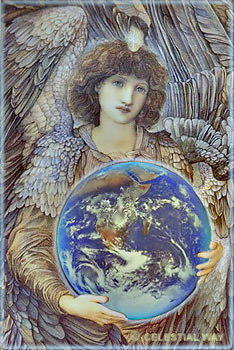COMPANIONS ON THE INNER WAY
Morton T. Kelsey
|
|
| 1 |
"God does not have to have perfect instruments, and the Holy One can use our feeble and faltering attempts at love and transform them."
|
|
| 2 |
"We have a capacity to perceive things as a whole, to see beyond the fragmentation within our world and grasp essences."
|
|
| 3 |
"One cannot become worthy of love. Love by its very nature is a free gift and grace."
|
|
| 4 |
"It is necessary that we learn to accept and love ourselves, as God constantly accepts and loves us, no matter what we are or do."
|
|
| 5 |
"God, the very creative power at the center of the universe, is loving and caring like a truly devoted parent. This love is not one aspect of God….but the very organizing reality at the heart of things. God is love."
|
|
| 6 |
"Love and prayer cannot in any way be separated from each other. They are different aspects of the same divine whole."
|
|
| 7 |
"What we do is a better indication of what we believe than what we think we think."
|
|
| 8 |
"What I do unto the least of these my brothers and sisters, I do unto the Divine."
|
|
| 9 |
"This loving God makes only one demand upon us; he sends us out into the world to share with others the love we have received. Then we can return to Love and slake our insatiable thirst for love once again."
|
|
| 10 |
"Plato speaks of a mathematical intuition by which we perceive the structure of reality. It was through insight of this kind that Sir Isaac Newton was given his monumental vision of the order within the cosmos. Kurt Godel speaks of the insight through which we can perceive the truths of mathematics and compares this to Plato's understanding of how we encounter the Ideas. This 'seeing through' ordinary reality, if carried far enough, can bring us to a religious understanding."
|
|
| 11 |
"Our meditation is never completed until it results in our attempt to make the influence of divine love felt in the world. To be specific, my meditative contact with the Divine Lover is never complete until some other human being feels more loved by me because of that contact."
|
|
| 12 |
"One of the aspects of real love is this: it tries to create the conditions in which other people may grow to the maximum of their potential."
|
|
| 13 |
"Each and every individual has value. No individual is expendable. Each person has a destiny and unique value to the Divine Lover."
|
|
| 14 |
"Scripture [the Bible] is constantly referring to the immediate divine-human encounter."
|
|
| 15 |
"A simple, childlike trust is often as important as wisdom and strict spiritual practice."
|
|
| 16 |
"There is a deep hunger that God has hidden in our inner abyss, which continues to draw us to the Divine Lover."
|
|
| 17 |
"Learning to know and love God continues in the life beyond death."
|
|
| 18 |
"It is not pleasant to reflect on the failures and mistakes we have made. Yet paradoxically, if we are on the journey and trying to learn, it is by these very mistakes that we become better equipped as instruments of the Divine Lover."
|
|
| 19 |
"Long ago Plato saw love, concrete human love, as one of the supreme and most adequate methods of giving us ecstasy and of opening us to a knowledge of the Ideas, of the spiritual world."
|
|
| 20 |
"The growth potential of the human being is infinite."
|
|
|
|
Randomize this reference |
New random category
Add a comment
Reference and bibliography |
All quotes, by category
We are gathering together the primary insights of spirituality and bringing them together into one place.
This archive contains 11,754 quotes, taken from 635 references,
organized in terms of 39 primary categories. Quotes are randomized and appear in a different way at every click.
Explore the navigation options to review these insights.
We include
- All major spiritual and religious traditions, from all cultures, and all historical epochs
- Major psychologists, philosophers, writers, scholars and leading religious personalities
- Sources in classical religion as well as voices from new consciousness, esotericism and mysticism
- Choices are guided by the spirit of oneness, love, kindness, inclusion and community
|

|
|

